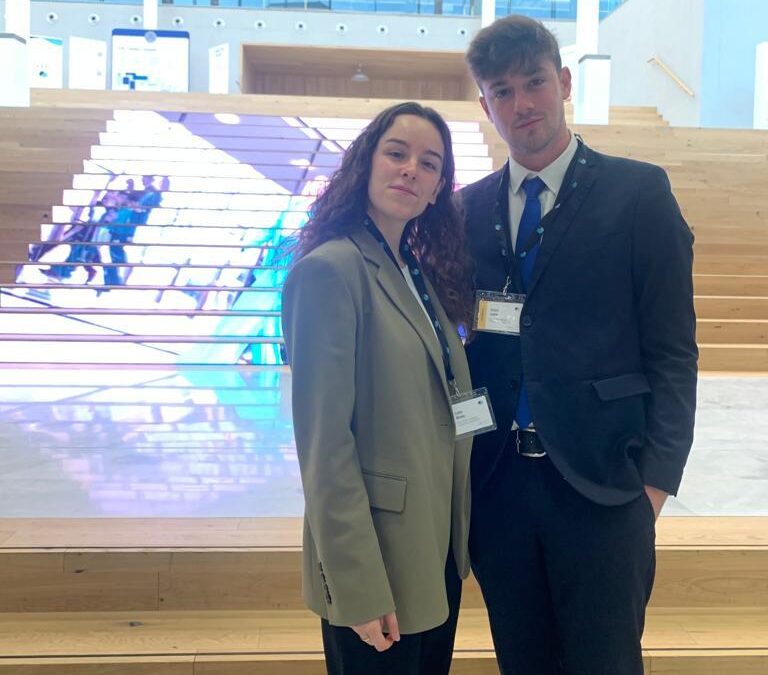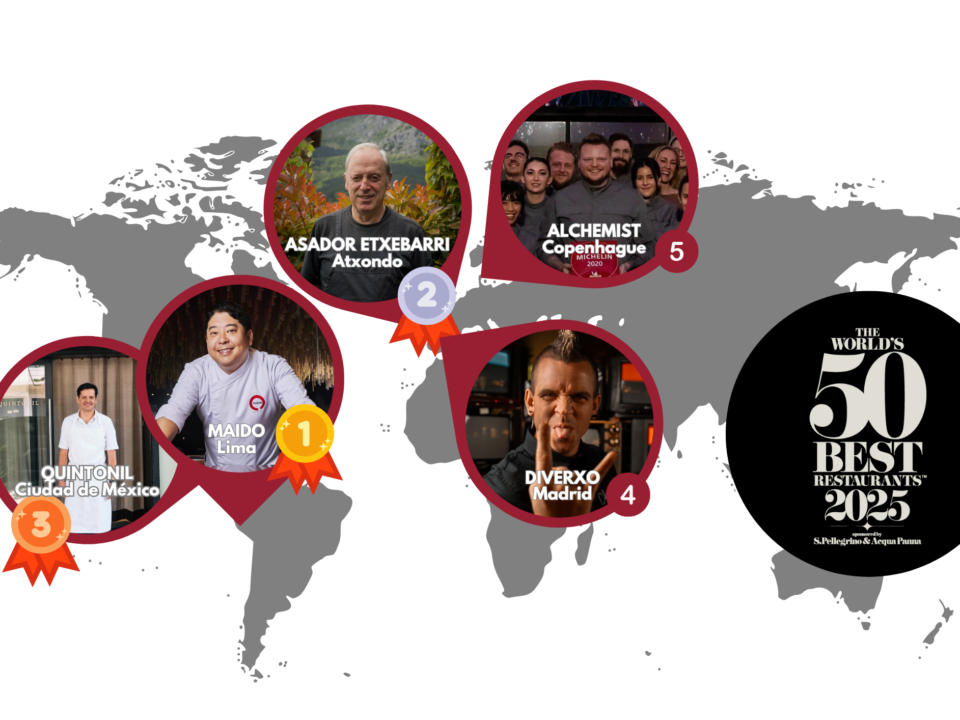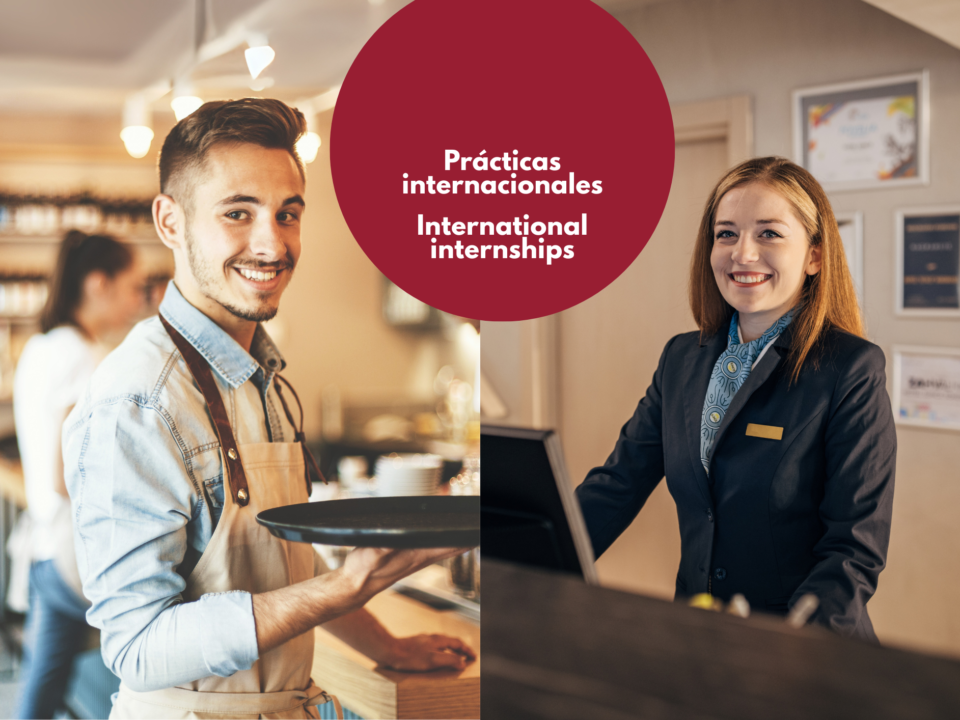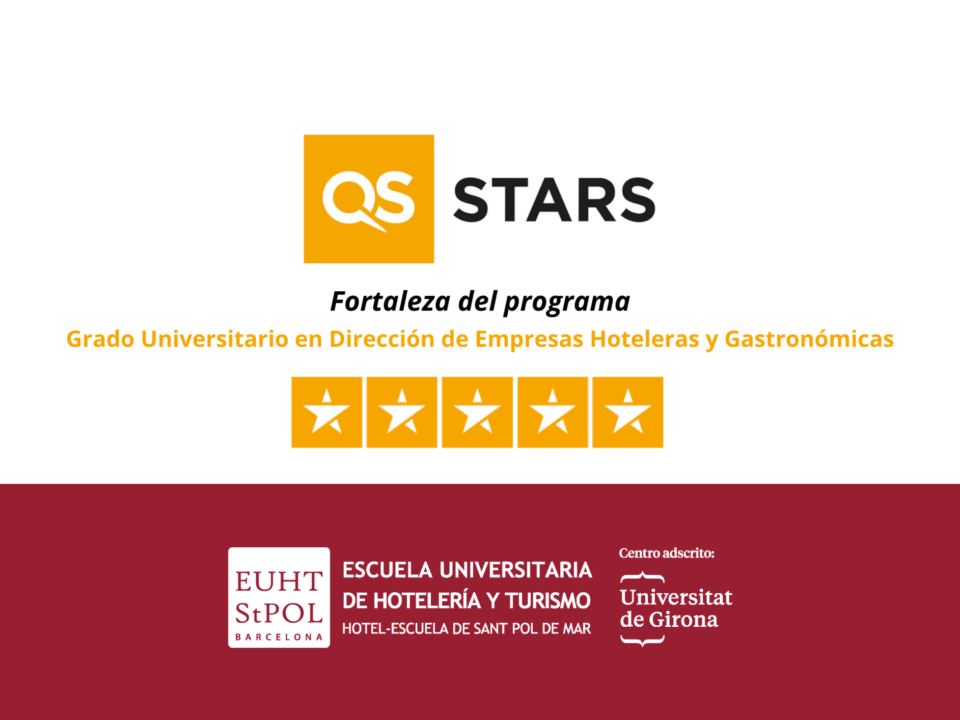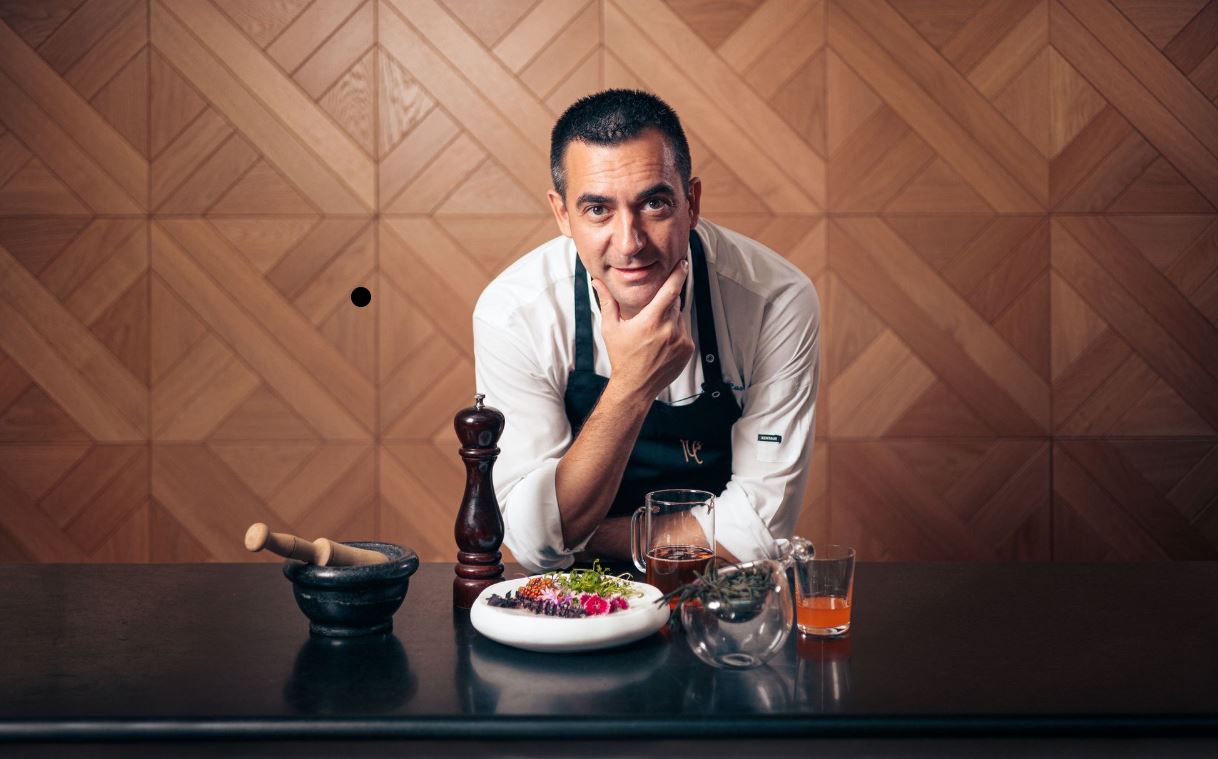
Lasarte head chef, Paolo Casagrande, will be chairing the Catalan Young Chef Award 2023
17 March, 2023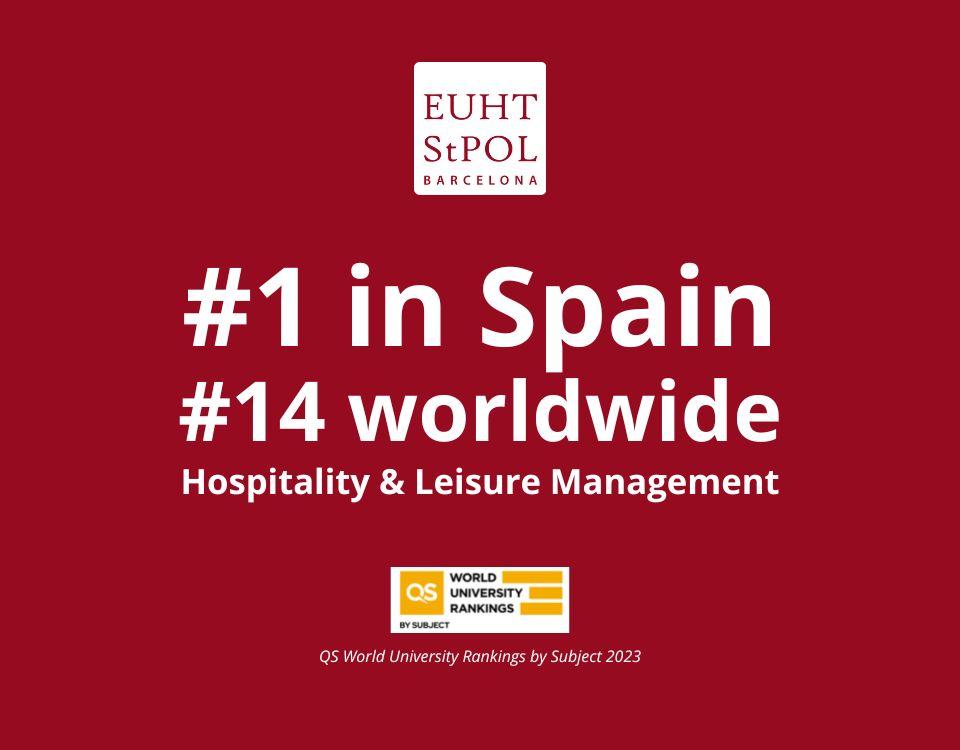
EUHT StPOL best university in Spain in Hospitality & Leisure Management for the sixth consecutive year and 14th in the world
24 March, 2023Laia Riola and Joan Julià, students of the Bachelor’s Degree in Hospitality and Tourism Management, have represented the EUHT StPOL at the Young Hospitality Summit (YHS) 2023, the largest international event for hospitality students promoted by the École Hôtelière from Lausanne (Switzerland). This year the EUHT StPOL was the only Spanish institution represented at the event.
Do you want to know what the YHS 2023 consisted of, what was the theme of this edition and how did our students lived it? Find it out down below!
The working focus of the 14th edition of the YHS has been circularity in the city of the future. For Laia, “circularity is the ability to take advantage of the own city dynamics to generate new solutions and opportunities out of them. Circularity must be an interdisciplinary approach that focuses on social, economic and environmental challenges”.
During the convention, all the students participate in working groups of 4 to 5 people proposing new ideas to tackle circularity opportunities, and in particular, the case study of urban megaproject of ‘The Line’ in Saudi Arabia. For example, Laia’s group has presented an idea of a public face recognition software service that would identify the emotions and moods of citizens, which at the same time, would give out recommendations and personalized advice to each individual regarding their mental health. Since ‘The Line’ would be a vertical city with a huge amount of elevators, Laia has explained that these would be the most suitable place to install scanners.
In fact, all the proposals revolve around five urban aspects: public space, mobility, entertainment, culture and technology. And it is on these last three aspects where Joan and his group have dived into. They proposed the creation of virtual reality rooms for public use that would allow citizens to visit any part of the world.
“It has helped us to see the future and to think about issues that would have never crossed my mind a week ago, and also I realized I could apply hospitality ideas in a project that is starting from scratch”, says Joan.
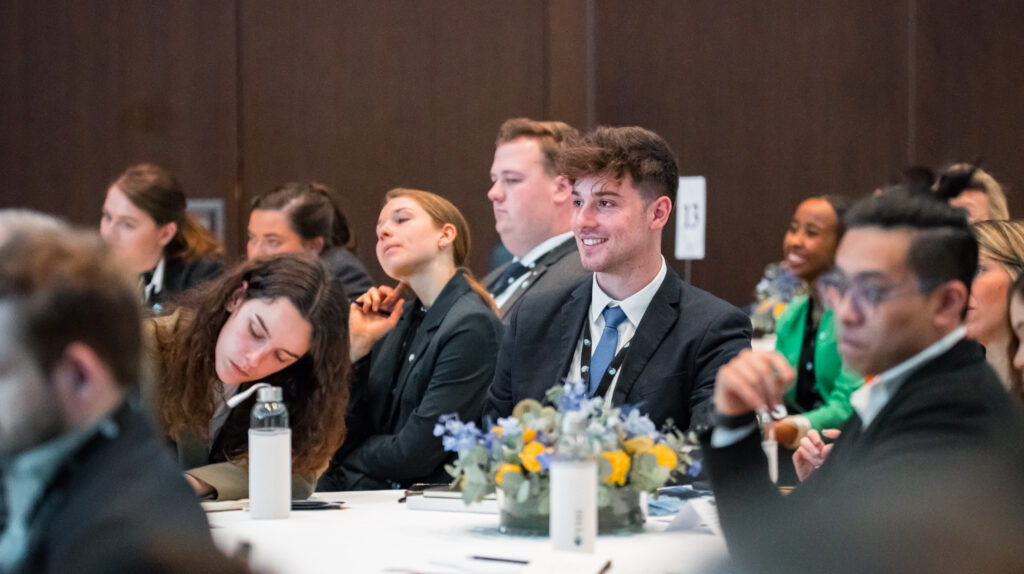
An opportunity for networking
YHS 2023 has brought 40 speakers and 74 students from 38 different institutions to discuss aspects such as luxury, sustainability or the hotel industry’s adaptability for change. With all the speakers and attendees, the YHS is a unique opportunity to make new contacts within the sector. Joan points out that he had never been surrounded by so many people in the hotel industry with the same age as him: “I got along very well with the colleagues I met, and at a professional level this experience is like a key to open future internships opportunities abroad”. Similarly, Laia values all these contacts and points out that “they are very useful if what you are looking for in your career is to travel a lot. Everyone comes here due to their passion and real interest in the sector”. In addition to the attendees, some hotel companies were present at stands where you could request information or leave your CV.
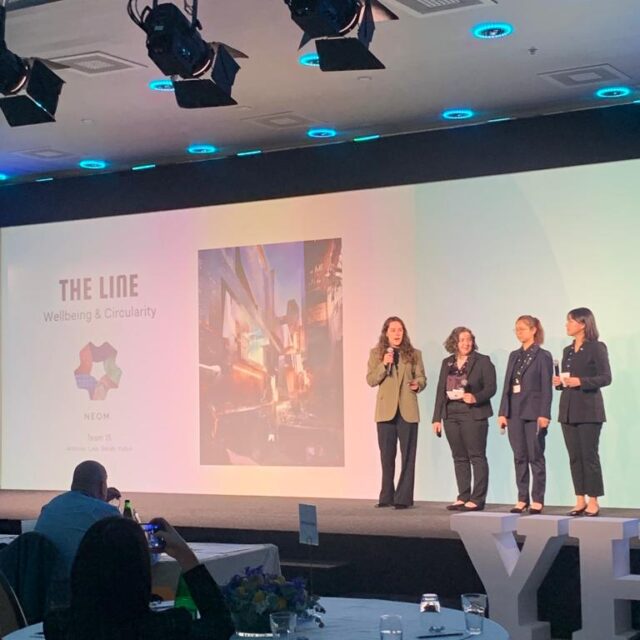
Professional and personal learning
During their workshops, both Joan and Laia have been in contact with their colleagues since a week before arriving in Lausanne. Once there, they put in common a final idea that was presented later on to the attending audience. “Being on the stage, microphone in hand, in front of 150 attendees plus the entire online audience has been quite a challenge for me”, says Laia. Also for Joan, this was the first time he presented in front of such a big audience: “It’s a unique learning experience that can only be acquired by taking a step forward and sticking to it”.
Both have emphasized that both the activities and the workshops have served them enormously on a professional and personal level, as well as to meet other hospitality professionals with skills and perspectives different from their own. Laia summed it up like this: “It’s true that everyone understands hospitality the same way, but there are nuances depending on who you talk to. For example, in Asia they have a very integrated idea of well-being, in the United States everything tends more towards luxury, and in Spanish-speaking countries the focus is on the warmth of the one-to-one relation with the customer”.
ams with an EUHT StPOL delegate!
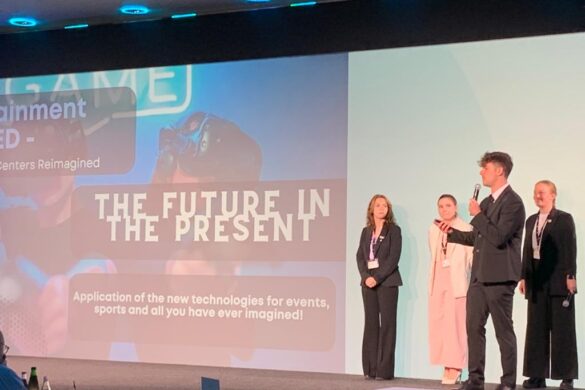
Other international experiences
The Young Hoteliers Summit is one of the many opportunities to live an international experience that the students of the Bachelor’s Degree in Hotel and Tourism Management have. During the four years of their career, they have different options to participate in projects, events, and competitions promoted by various institutions on current issues in the hotel, tourism and gastronomy industries.
Added to this is the possibility of having up to four international experiences during your studies, carried out through summer internships and the possibility of doing an Erasmus or exchange with another university.

